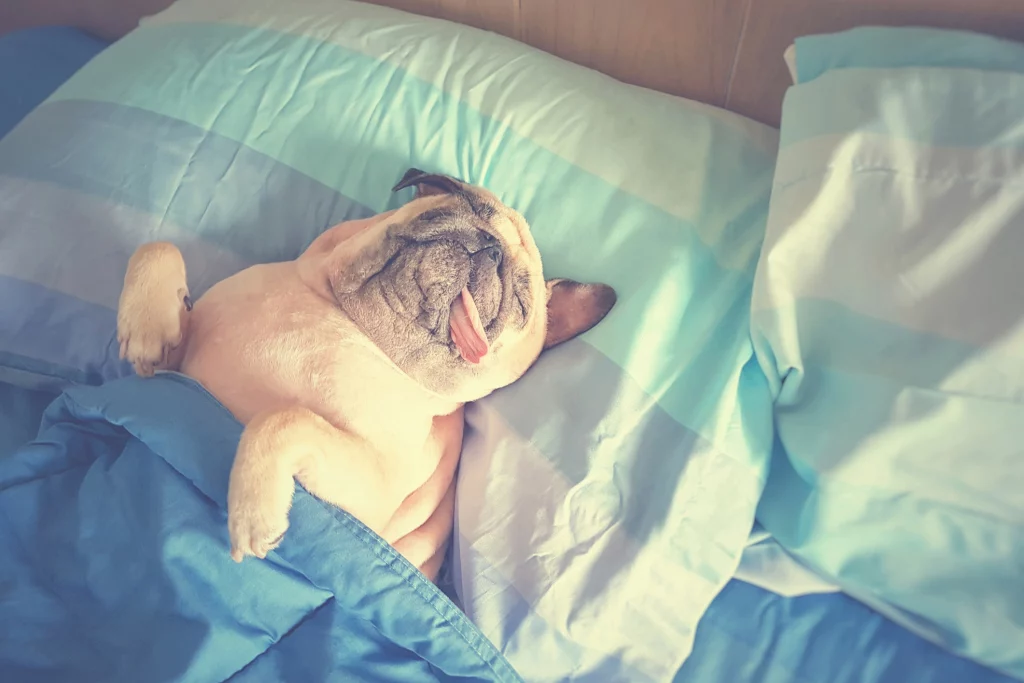Once again it’s a fitful night as your trusty dog is sleeping beside you, ‘sawing wood’ so loudly that you can’t rest. Is there anything that helps?
The good news is that dogs usually don’t have sleep apnea like people, which is a dangerous condition. She shouldn’t stop breathing. But she may have difficulty with her breathing for a variety of reasons. Some breeds such as bulldogs and pugs have been bred for a shorter muzzle, causing some trouble with air passages. Other factors include obesity, sleeping position, tooth or mouth issues, allergies, congestion or a stuffy nose. The noise is caused by the vibration of loose, relaxed tissues in the throat or nasal passages, especially when they are constricted or obstructed in some way.
Why don’t they have this problem when they are awake? When your dog stands, the lungs are suspended and the air passages are optimally open, without obstruction. When dogs lay down, the soft palate at the back of the throat relaxes, and then weight and sleeping position can put pressure on their airways.
Snoring is often associated with old dogs. That’s because the soft palate and larynx muscles are not as tight as they were when your dog was younger. They are going to be more relaxed when sleeping, and vibrating more.
Some things you might try:
- Roll her into a different sleeping position.
- Get a dog bed with a pillow collar around the edges so she can sleep with her head elevated.
- Take her for more walks and trim back her diet so she can lose excess weight.
- Get a food puzzle which will make her swallow her food less rapidly, to help her lose weight.
- Check the air quality. Change furnace air filters more often, or get an air purifier.
- A humidifier will help if the problem is throat irritation caused by dry air.
- Wash her bedding and sweep the floors more often.
- Watch for possible allergies to a food or grass, or time of year, which would indicate a pollen or mold allergy.
When to see the vet:
- Are there any other concurrent changes such as choking, drooling, coughing or sneezing?
- Is there a change in her behavior or appetite?
- Did the snoring start suddenly? It might be a dental or inflammation problem.
- Is it really loud? The louder the snoring is, the bigger the problem. Have a vet check your dog.
- Your pet is obviously wheezing, or having trouble breathing or swallowing. Get help immediately.
- Any time you have a concern. Your pet could have swallowed something or could have a polyp.

